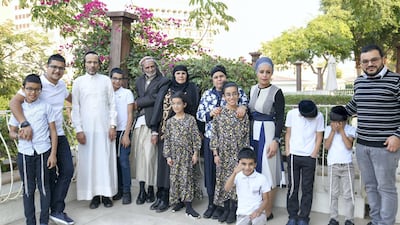Since the Houthi rebel group took over parts of Yemen, one of the ways it has threatened to reset the country's rich identity has been by targeting its social fabric. In the case of the few Yemenite Jews left in the country, the Houthis are committed to ending their presence entirely.
The community has lived under oppression in Yemen for decades, since even before the Houthi coup more than five years ago. Many migrated to the West and Israel. Now, the plight of those who remain – estimated to number between just 20 and 40 individuals – is intolerable. Soon, they may leave, too.
Their departure would represent one of the great cultural losses in the history of Yemen, and one that is echoed across the Arab world; Jewish communities have dwindled in several Arab countries over the past century. Much of that phenomenon is the result of incidents of persecution, which amounts to an unacceptable number of personal catastrophes for Jewish families who were forced to leave the only lands they and their ancestors have ever known. War and politics have displaced millions in the region, including millions of Palestinians who lost their homes due to occupation.

In the Gulf, religious diversity is not just a contemporary phenomenon. While it is likely that Jews first settled permanently in Yemen around 300 BC, some historians suggest Jews first arrived in the country as far back as the 10th century BC. In 1998, scholars published news of the discovery of a Jewish tombstone in Ras Al Khaimah, UAE. The stone mourns the passing of a man named David, who was most likely a trader from the Persian Jewish community. These finds continue to prove wrong the ideologies of groups like the Houthis, who simplify the history of the region to bolster a fragile sense of their own legitimacy.
Yesterday, The National reported on a reunion in Abu Dhabi this month of the Al Chabib family, the majority of whom fled Yemen for the UK two decades ago. Only the grandparents and an unlce remained behind, in increasingly unsustainable circumstances. Now, after an effort co-ordinated by the UAE government, their lives are no longer in danger.
Years of civil war have taken a heavy toll on Yemen's heritage. In spite of Houthi vandalism, however, the nation's Jews, even in their absence, remain part of the country's history. Support from states such as the UAE reinforce this fact, and will continue to counter the harmful, invented narratives of extremists.
It also brings peace to families like the Al Chabibs, who have been traumatised for so long. In the words of the family's patriarch, Sulaiman Chabib, "I now know what happiness truly is. My heart and eyes are full of joy."
The Houthi's opposite vision for Yemen sustains its havoc on innocent people. Eventually it will fail, as long as nations continue to assert the truth and beauty of the diversity embodied within the culture and history of the Middle East.


